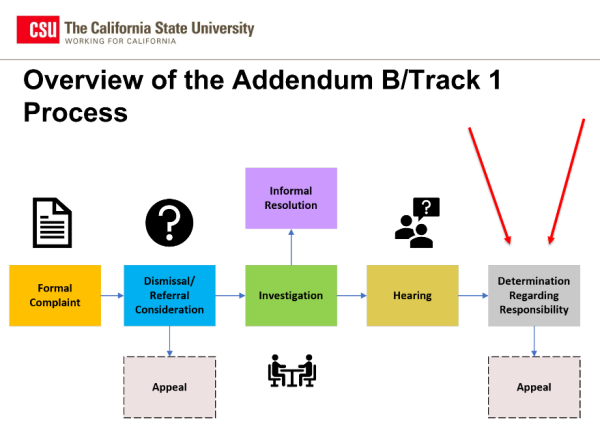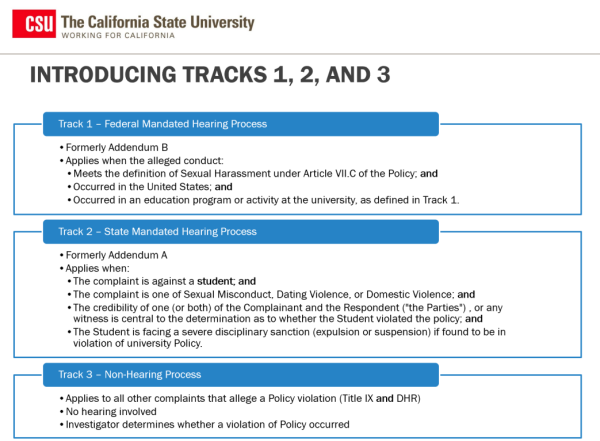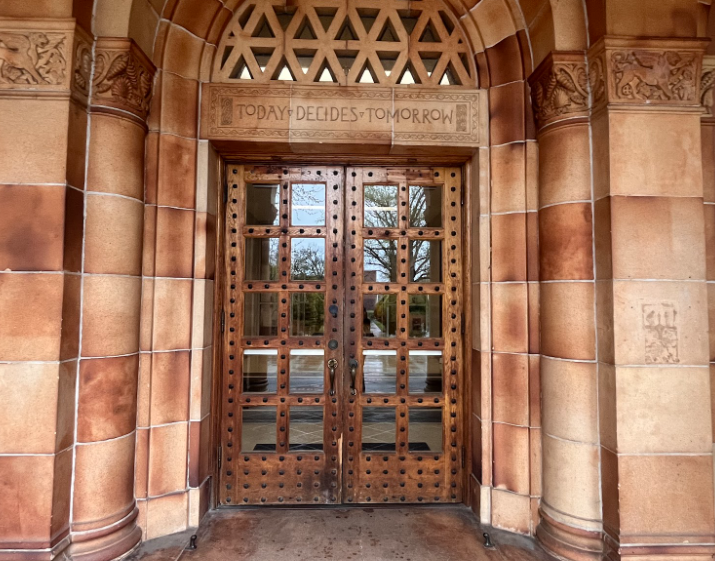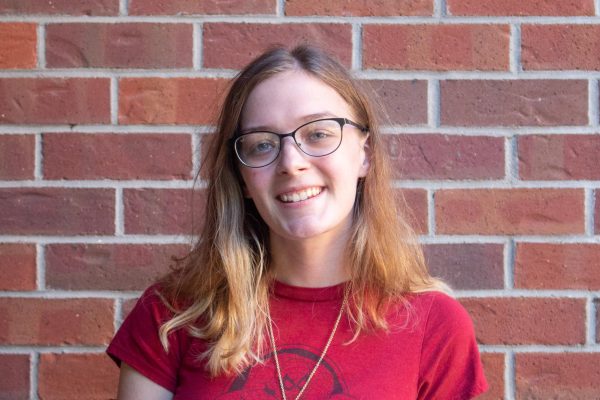Chico State is satisfied with the reporting system for sexual assault despite reports continually showing that it is being under reported and investigated.
A 2023 systemwide report found that the data collected by the California State University Title IX offices was inconsistent and inefficient.
Cozen O’Connor, an international law firm, conducted the report on the CSU Title IX and Discrimination, Harassment and Retaliation Assessment to determine the state of reporting sexual assault.
Chico State has since addressed some of the recommendations included in the report such as staffing needs, internal protocol, launching an online reporting tool and reviewing current prevention training methods, stated Ashley Gebb, the executive director of university communications for Chico State, in an email.
Students and faculty can send feedback about the current system anonymously through their online survey.
“It [the current reporting system] is effective. But that doesn’t mean we can’t make it more effective. The University is currently working to reduce reporting barriers and raise overall awareness of services and resources,” Gebb stated in an email.
When reporting, students are often interviewed multiple times before a formal report is drafted. The process of filing a report takes time, particularly if the case leads to a full investigation.
“We always make a report, in only one of three types of investigations do we make an analysis and a finding,” Gebb stated in an email.
Training offered by the Title IX office in 2023 explains that mandatory dismissal of cases must occur if the report does not meet the criteria of Track 1, formerly known as Addendum B, which states that the reported conduct must:
- Meet the definition of sexual harassment under Article VII.C of the Policy
- Occur in the United States
- Occur in an education program or activity at the university

This means should a student experience sexual harassment on a study abroad program their case is dismissed per CSU policy under Track 1. This issue could still be handled under Track 2 or 3 but the process would change.

Of 112 cases that were reported in 2023, only five received a formal investigation and of those five, only three cases held the respondent responsible.
In the 2020-2021 school year, 42 cases were reported and only one of those cases received a formal investigation.
In the 2019-2020 school year, the school received 88 reports which was a rise from the 77 reports in 2018-19 school year.
This report details formal investigations have gone down since January 2019 when a California Court of Appeal issued a ruling in the case John Doe v. Kegan Allee.
Doe sued USC’s Title IX investigator Kegan Allee due to not having a third party investigate the credibility of witnesses and the accuser involved in the case. The California Court of Appeal agreed with Doe’s complaint and thus changed the way both USC and CSU colleges address the Title IX investigation process.
In order for an investigation to be conducted there must be proper cross-examination conducted by an independent party. This was the birth of Track 2 formerly known as Addendum A.
Many of these details are not currently taught in the Title IX training that staff and students receive upon employment or enrollment in the university. There is a list of rights available to students on the Title IX website that is aimed at providing options for those looking to submit a case.
The Chico Speaks survey was conducted by Chico State faculty members in 2019 to review data sent out by the Title IX office. A total of 4,138 students responded to the survey that sought to discover the exact impact of sexual assault and harassment on campus.
Chico State had 12% of respondents declare that they experienced at least one instance of sexual violence since the start of the school year which is 5% higher than cohort’s reported from other U.S. and Canadian schools. For the study, “Sexual violence” was defined as:
- Someone fondled, kissed or rubbed up against private areas or removed some of my clothes even though it was unwanted.
- Someone tried to sexually penetrate even though it was unwanted
- Someone sexually penetrated me even though it was unwanted
- Someone tried to perform oral sex or make someone give oral sex even though it was unwanted
- Someone performed oral sex or make someone give them oral sex even though it was unwanted
Nationally, 33.2% of undergraduate students experience rape or sexual assault through physical force, violence, or incapacitation.
Of the students who reported some form of sexual violence, 29% also reported that they lived in Greek life housing.
Finding cases of sexual misconduct in Greek life is not unexpected. A popular film titled “The Hunting Ground” published in 2015, sought to expose the issues around sexual misconduct in Greek life spaces and the ways in which universities may try to make their sexual assault numbers appear lower.
The film criticized a list of fraternities that were known for cultivating rape culture including Sigma Alpha Epsilon.
Sigma Alpha Epsilon, or SAE, has a chapter at Chico State that is currently unrecognized. SAE sought to get university recognition in the fall 2023 semester, but was denied by the Interfraternity Council.
The national organization and the local chapter say that the club is meant to create a culture of entrepreneurial gentlemen.
Despite the “True Gentlemen” model that SAE promotes, “Sexual Assault Expected” is a nickname that has dominated the SAE reputation at many campuses with an SAE chapter due to frequent reports of sexual misconduct.
“718 students responding to the survey participated in fraternities or sororities and nearly 24% of them reported experiencing sexual violence between the start of the school year in fall 2017 and the survey dates in April 2018. This is nearly twice the rate for those who do not participate in fraternities and sororities,” the report states.
Correction: The article has been updated to include clarifying information on the different Title IX tracks.
Jessica Miller can be reached at orionmanagingeditor@gmail.com.








